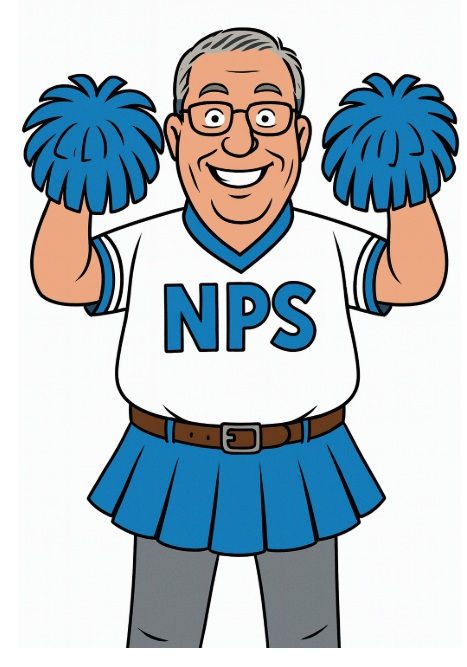Marketing and Customer Experience - The Essential Partnership You Can't Ignore
- Michael Brandt

- Feb 26, 2025
- 5 min read

Businesses are constantly vying for the attention of consumers bombarded with endless messages and choices. Amidst the noise, two critical pillars stand out as defining elements of lasting success: marketing and customer experience. Much like two dancers performing in perfect synchronization, these components create a harmonious relationship that not only attracts customers but also encourages loyalty and engagement. Recognizing that one cannot thrive without the other is crucial for any brand seeking to not just exist but to genuinely stand out in the modern marketplace.
Consider this: how often have you encountered a brand that seemingly has it all, such as eye-catching advertisements, strong social media presence, and captivating slogans, only to find that their customer service falls flat when you reach out for help? Conversely, you may have enjoyed an impeccable service experience only to be turned off by a marketing campaign that seems disconnected or inauthentic. These scenarios illustrate a fundamental truth: marketing and customer experience are not merely separate entities but rather intertwined forces that influence consumer perception and behaviour. The ability to weave these two elements together is not just a business strategy; it’s an essential survival tactic in a world where customers wield immense power.
The intersection of marketing and customer experience presents a unique opportunity for businesses to differentiate themselves in a crowded landscape. Amplifying your brand’s message through thoughtful marketing can drive potential customers to your doorstep, but if the experience they encounter is lacklustre, they may walk right back out again. In contrast, an excellent customer experience can amplify positive word-of-mouth, turning loyal customers into brand evangelists who share your story across their networks. As the adage goes, “people don’t remember what you said or did; they remember how you made them feel.” This profound insight underscores the reality that an integrated approach to both marketing and customer experience can be your secret weapon in building a memorable and impactful brand.
So, as we further explore the inseparable bond between marketing and customer experience, I invite you to reconsider your own perspectives and practices. Are you treating these critical areas as silos, or are you recognizing their symbiotic relationship? By the end of this post, you’ll, hopefully, not only gain a deeper understanding of how marketing and customer experience interact but also discover actionable insights to create a robust strategy that elevates your brand, engages your audience more effectively, and builds lasting relationships. Let’s embark on this journey to uncover the beautiful synergy that awaits when you unite marketing with customer experience, a relationship that could be the key to unlocking your brand’s true potential.
In recent months, I've been struck by a concerning trend: marketing professionals dismissing Customer Experience (CX) as "not their thing." This disconnect is not just surprising, it's potentially damaging to business success. Let's explore why marketing and CX are inherently linked and why this relationship matters more than ever.

The Marketing and Customer Experience Connection
At its core, marketing is about attracting customers and creating expectations about your brand, product, or service. CX is about delivering on those expectations. When these two functions operate in silos, we create a dangerous gap between promise and reality.
Why the Disconnect Matters
1. Brand Promise vs. Reality
Marketing teams craft compelling brand messages and promises, but if the actual customer experience doesn't align with these promises, we're essentially setting ourselves up for failure. Every advertisement, social media post, and marketing campaign creates expectations that the CX team must fulfil.
2. Customer Journey Continuity
The customer journey doesn't start when someone makes a purchase, it begins with their first brand interaction, often through marketing touchpoints. Marketing is the first chapter in the customer experience story, not a separate novel.
3. Data and Insights
Both marketing and CX teams collect valuable customer data. Marketing knows what attracts customers, while CX understands what keeps them. When these insights aren't shared, we miss crucial opportunities for improvement and innovation.
The Business Impact
Companies that align their marketing and CX efforts see significant benefits:
Higher customer satisfaction scores
Improved customer retention
More effective marketing campaigns
Better ROI on marketing spend
Stronger brand loyalty
More authentic brand messaging
Bridging the Gap
Here's how marketing teams can embrace CX:
Collaborate on Customer Personas Marketing and CX teams should jointly develop and maintain customer personas, ensuring a unified understanding of target audiences.
Share Data and Insights Regular meetings between marketing and CX teams to share customer feedback, behaviour patterns, and campaign results can lead to more informed strategies.
Experience-First Marketing Before launching campaigns, consider how the promised experience will be delivered. Marketing should work with CX teams to ensure promises can be kept.
Unified Metrics Align marketing and CX metrics to create shared goals and accountability for the entire customer journey.
Real-World Impact
Consider this scenario: A marketing team launches a campaign promising "24/7 expert support." If they haven't coordinated with the CX team about support capabilities, they might be setting customers up for disappointment. However, when marketing and CX work together, they can create campaigns that highlight genuine strengths and set realistic expectations.
The Future of Marketing is CX
As markets become more competitive and customers more discerning, the line between marketing and CX will continue to blur. Forward-thinking companies are already treating them as integrated functions rather than separate departments. Marketing professionals who dismiss CX as "not their thing" are missing a crucial point: in today's experience-driven economy, marketing is CX, and CX is marketing. The most successful brands understand that every marketing message is a promise, and every customer experience is a marketing opportunity.
To Marketing Professionals
To marketing professionals reading this: I challenge you to spend a day with your CX team. Listen to customer calls, read feedback, and understand the day-to-day reality of delivering on your marketing promises. You might be surprised by how much this understanding can improve your marketing strategies.
Conclusion
The distinction between marketing and CX is artificial and increasingly obsolete. In an era where customer experience is the key differentiator, marketing professionals must embrace their role in shaping and delivering that experience. Those who continue to view CX as "not their thing" risk becoming increasingly irrelevant in a market where customer experience is everything.Remember: Every marketing message sets an expectation. Every expectation demands an experience. And every experience becomes part of your brand story.
About the Author
Michael Brandt is a CX strategist, consultant, and trainer with extensive experience in customer experience management, customer journey mapping, and VoC programmes. With a background in global, multi-cultural organisations, he helps businesses improve their CX strategy, processes, and leadership approach. As a guest lecturer and industry speaker, he is passionate about driving meaningful customer-focused change.




Comments